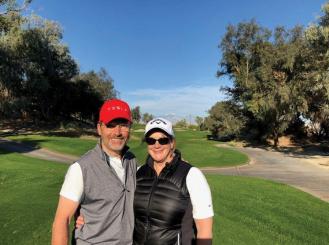Sep 07, 2018
Immediate past president and lead physician at New England Cancer Specialists; ASCO Board of Directors member; immediate past chair of the State Affiliate Council; Clinical Practice Guidelines Committee Board liaison; member of White and Brown Bagging Committee, ASCO-CAP ER-PR Testing Committee, ASCO Oncology Practice Conference Planning Committee, MACRA Speakers Group, CPC’s Payment Reform Implementation Workgroup, Strategic Planning Task Force, CancerLinQ Physician Advisory Committee, and Practice Guidelines Implementation Network (PGIN).
What led you to oncology?
TW: Two factors really led me to oncology. One was a patient experience and the second was a mentor. The patient experience was my first patient on the Klingenstein Pavilion at Mount Sinai Medical Center. She was a 26-year-old pregnant woman with acute myeloid leukemia and I was her intern. I knew from that moment that I wanted to take care of people with cancer.
The mentor was Carol Portlock, MD, who at the time was at Yale Medical Oncology. I heard her speak at a grand rounds and I decided then and there that this would be my field of choice. I did my fellowship at Yale and had an opportunity to work with Dr. Portlock.
What is the last book you read?
TW: Beneath a Scarlet Sky by Mark T. Sullivan. This is a fabulous historical fiction story about courage and devotion from the point of view of a young Italian man. My husband and I both had an opportunity to meet the author and the main character in the book is still alive.
What hobbies do you enjoy?
TW: Over the years there has not been a lot of time to cultivate hobbies. I do love doing international medicine and have traveled three times to Peru on primary care missions, and once to Bangladesh. I love reading, playing golf, and hanging out with friends.
Do you have a personal motto?
TW: Never give up.
What career could you see yourself in if you were not an oncologist?
TW: I would love to have studied multiple languages and worked at the United Nations or the State Department.
What changes do you envision in the field for the next 10 years?
TW: In oncology, we must come to some reconciliation about cost of care and access to valuable therapies. There needs to be solutions that can be a win/win for all involved, especially for patients, when it comes to accessing innovative pharmaceuticals and cancer care. Without great minds working together to develop these solutions, the innovation will continue, but will be blocked from most patients with cancer. This is already an issue in many parts of the world, and I would hate to see it truly be an issue in the United States.
What would you say to a young physician thinking about entering the field of oncology?
TW: Besides the selection of my husband, this was the single best decision of my life. I have had an opportunity to personally grow and, through that, impact many patients. I decided to remain in community oncology as I am more of a people person than a researcher. It has been exciting to watch certain parts of cancer care be enhanced so that patients can better tolerate treatments and have, in some cases, superb outcomes. It has been an honor to watch research mature, and then apply it in community cancer care and see the positive outcomes.

